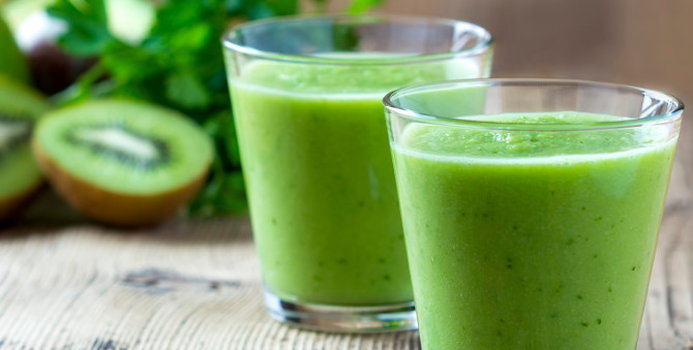Kiwi or kiwifruit are small fuzzy brown fruits with a soft green pulp on the inside. They are grown on vines that require lots of pruning, similar to grape vines. They grow in warm temperate climates and are often found seasonally in grocery stores all over the U.S. These super foods are packed with phytonutrients that are associated with increased health and reduction of developing diseases. Kiwis are popular in fruit salads, smoothies or as a sweet topping for pastries.
Nutritional Value of Kiwi
1 Kiwi fruit, without skin (although the skin is edible and good source of vitamins and minerals!)
Calories: 46
Fat: 0g
Carbohydrates: 11g / 4% DV
Protein: 1g
Fiber: 2g / 9% DV
Vitamin K: 30.6mcg / 38% DV
Vitamin C: 70.5mg / 117% DV
Health Benefits of Kiwi
- Kiwis are packed with phytonutrients. Phytonutrients are components in foods that are plant chemicals and appear to promote health by sparking body processes that fight and/or reduce the risk of some diseases. They are neither vitamin nor mineral but rather substances that plants produce to protect themselves against pests, viruses, bacteria and fungi. They are responsible for the texture, aroma, flavor and color of fruits and vegetables. They are one of the main reasons that you are always recommended to have a variety of bright colorful foods in your diet. Some of the phytonutrients found in Kiwis are anthocyanidins, which work as an antioxidant and contribute to healthy immune function. Kiwis also have lutein and phenols, which are associated with neutralizing free radicals and healthy vision.
- More than 100% of your Daily Value of vitamin C is found in every Kiwi. Vitamin C is important for helping your body absorb iron and folate, in addition to helping your body produce collagen. It is also important for healthy gums, preventing infections and wound healing. Another reason vitamin C is important is for its antioxidant properties, working to inhibit damage caused to cells by free radicals. If you notice you are easily bruising, consider consuming more vitamin C because it helps keep your blood vessels and capillary walls firm.
*Note food sources are always a better choice than multivitamins.
- Kiwis are a high source of vitamin K. Vitamin K helps your body make proteins for your bones, blood, and kidneys, including the ones that help your blood clot.
- Kiwis have a high score of 1210 on the Oxygen Radical Absorbency Capacity (ORAC) scoring method. This estimates the overall antioxidant potential of fruits and vegetables. However, there are no guidelines to suggest how many ORAC units you need per day and a high value doesn't indicate the bioavailability of the antioxidants in the food.

Emily DeLacey MS, RD is a Registered Dietitian and currently working in Jamaica as a HIV/ AIDS Prevention Specialist. She attended Central Washington University for her Bachelor's Degree in Science and Dietetics and continued on after her internship to Kent State University for her Master's Degree in Science and Nutrition, with a focus on public health and advocacy. She served as a U.S. Peace Corps Volunteer in Malawi 2012-2014 working as a Community Health Advisor in a rural village, immersing in the joys of life without electricity or running water. She has been to 20+ countries and 47 of the 50 states in the US. Traveling, adventuring and experiencing new cultures has made her a passionate advocate for the equality of nutrition and wellness for all people.



